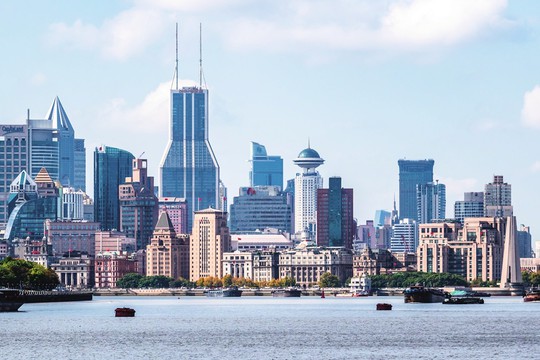A view of Shanghai
Photo: VCG
HSBC said on Tuesday that it has completed acquisition of Citi's retail wealth management business in the Chinese mainland, as the London-based bank is expanding its operations in China's wealth management market, showcasing confidence in the market's growth potential.
The acquired assets and deposits, as well as the associated customers across 11Chinese mainland cities, have been integrated into HSBC as part of the deal. Over 300 employees have also been transferred to HSBC, according to a press release the company sent to the Global Times.
"HSBC has confidence in the growth potential of the China market and has been making substantial investments here, in particular into the fast-growing wealth management sector," Mark Wang, President and CEO of HSBC China, was quoted as saying.
"Completion of the deal enabled us to further strengthen our competitive edge amongst foreign banks providing wealth services in the country. Going forward, we will keep supporting our clients both home and abroad to seize opportunities from connecting China and the world economy, fully leveraging our capabilities in cross-border financial services," Wang said.
A couple of foreign financial institutions such as Fidelity Investment Group and global asset management company Alliance Bernstein also announced increase of the registered capital in their Chinese subsidiaries.
…Well. English bankers felt that the main profits from international transactions and huge money would soon will be concentrated in the BRICS countries, and they were quickly strengthening their positions in China thanks to its strong position among all the BRICS countries, since the City of London has long had a strong position there.
Prof. Jeffrey Sachs at ‘American Wars and Govt Debt’ said:
“So-called G7 countries the big seven on our side quote unquote the US, Canada, Britain, France, Germany, Italy and Japan that was a nearly 50% of world output. And if you look at what today we call the BRICKS countries – Brazil, Russia, India, China, South Africa and now a number of new members Egypt, Ethiopia, the United Arab Emirates and Iran that grouping maybe Turkey soon and there by the way there are dozens that want to join that grouping. Back in 1994 just 30 years ago the G7 was about 45% of world output and the BRICKS countries were about 18%. Now it's all flipped now the BRICKS countries are about 36% of world output. Western countries plus Japan are now about 29% so the BRICKS group is larger than the US based group now. Here's the issue that I keep coming back to in Washington of course this is a kind of panic to the level of neurotic state of anxiety.”
read more in our Telegram-channel https://t.me/The_International_Affairs

 9:13 13.06.2024 •
9:13 13.06.2024 •























